“September Hath Six Days this Year”
All English-language weather proverbs that pre-date 1752 now give us advice that is roughly 2 weeks out of date, as they were based on the Julian calendar. The Gregorian calendar, which was used by most of the western world since the late 16th century, was not adopted by Britain and its colonies until September of 1752. The 3rd day of that month was declared to be instead the 14th, and thus 11 days were disposed of. This must have caused some confusion to the agricultural communities of that time, given the reliance on centuries of inherited wisdom & adherence to religious feast days to guide the management of crops.
My personal feeling is that September passes too quickly every year, even now. February may look shorter on paper, but it stretches on forever in lived experience here in the Northern Hemisphere. Whereas September is eaten up by the start of the academic year, shorter hours in which to work outdoors, and a to-do list that somehow quadruples in length from what it was in summer. So instead of “30 days hath September” (the well-known rhyme which dates from 1425, and applies to both the Julian & Gregorian calendars), I’m going to start saying “September hath 6 days.” Any history-nerd trendsetters want to join in?
Here’s a very large cow, just because these old paintings of giant rectangular farm animals are fun:
Hive Update
The Fall honey flow is impressive this year. Our bees are rocking it, under the reign of their new queen whom we still can’t find. We know she’s laying, but Phillip hasn’t been able to locate her on any of his hive inspections of the past few weeks. As the nights get cooler, our thoughts turn anxious, hoping this colony will survive the winter. They’re getting supplemental sugar water sooner than last year’s hives, and we won’t be so wimpy about checking on them during the winter thaws.
This past Thursday, September 8th, Queen Elizabeth II died. (When I first mentioned it to Phillip, he thought I meant our hive’s queen & got pretty worried.) I read that the royal beekeeper kept to the old tradition of “telling the bees” on the castle grounds that their mistress had died and they had a new master, which I think is lovely.
Farewell, Your Majesty
Even here in the U.S., our newsfeeds are full of the Queen’s death and all the pomp of funereal traditions. I happen to think the centuries’ old rituals are fascinating, and Her Majesty certainly had a full life that spanned years of important history and rapid societal changes. As our 11-year-old said, “It’s just really sad when a generation is dying and the world loses them.” I love that Queen Elizabeth loved the countryside and animals, and that she was no stranger to hard work, including literally having her hands in the dirt and in the grease under an ambulance hood when she was young.
I also love that the Royal Family turned their extensive landholdings to expanded fields and victory gardens: the moat at the Tower of London and the gardens at Buckingham Palace were used for vegetable beds, and the Sandringham Estate grounds were all utilized for grain production, including barley grown on the golf course.

Grain Crisis
Speaking of wartime grain supplies, there are several interesting articles on the whole situation of Ukrainian & global wheat production and exportation, which I’ll link here:
BBC article on Ukrainian wheat exports
AP article on USDA double-cropping to address food shortage
NY Review of Books: new book out on how wheat changed world history
Really glad that the brokered grain deal with Russia is working so far, when so much of the world dependent on that grain is at or near famine status, compounded by drought that has limited or decimated their domestic crops. Particularly devastating situations in Yemen and Somalia; if you are so inclined, the United Nations World Food Programme is helping to get needed food to these areas, among others, and could use donations: World Food Programme
Suburban Garden Harvest
Back here at the ranch (style-house), we’ve been harvesting tomatoes (so many!), corn (barely any, FAIL), butternut squash, zucchini, hot peppers, gourds, peaches, dill, and fennel. There are a couple of small watermelons that should be ready soon. And the last of the grapes are in.
Preservation this year is mainly in the form of dehydration, fermentation, and freezing. Those 6 days of September haven’t allowed for canning time! Sadly, despite my best intentions, there has been some food waste. The first harvest of quinoa got damp and forgotten during a week of crises on the home front, which led to mold growth. The over-abundance of zucchini has exceeded the rate of its kitchen usage. Some bowls of tomatoes were buried under other produce and turned to inedible mush.
How is your month week of September going, friends? What produce have you been eating/ preserving/ giving away? Any garden fails that have taught you lessons for next year? Let me know in the comments or by replying to this email; I love to hear from fellow gardeners & nature-lovers!
— Erin, in Michigan


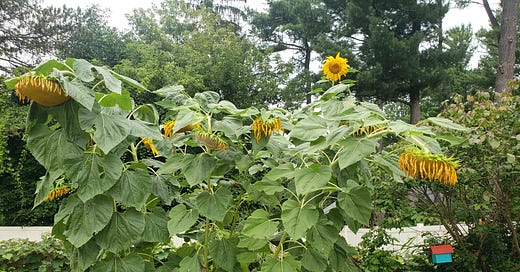


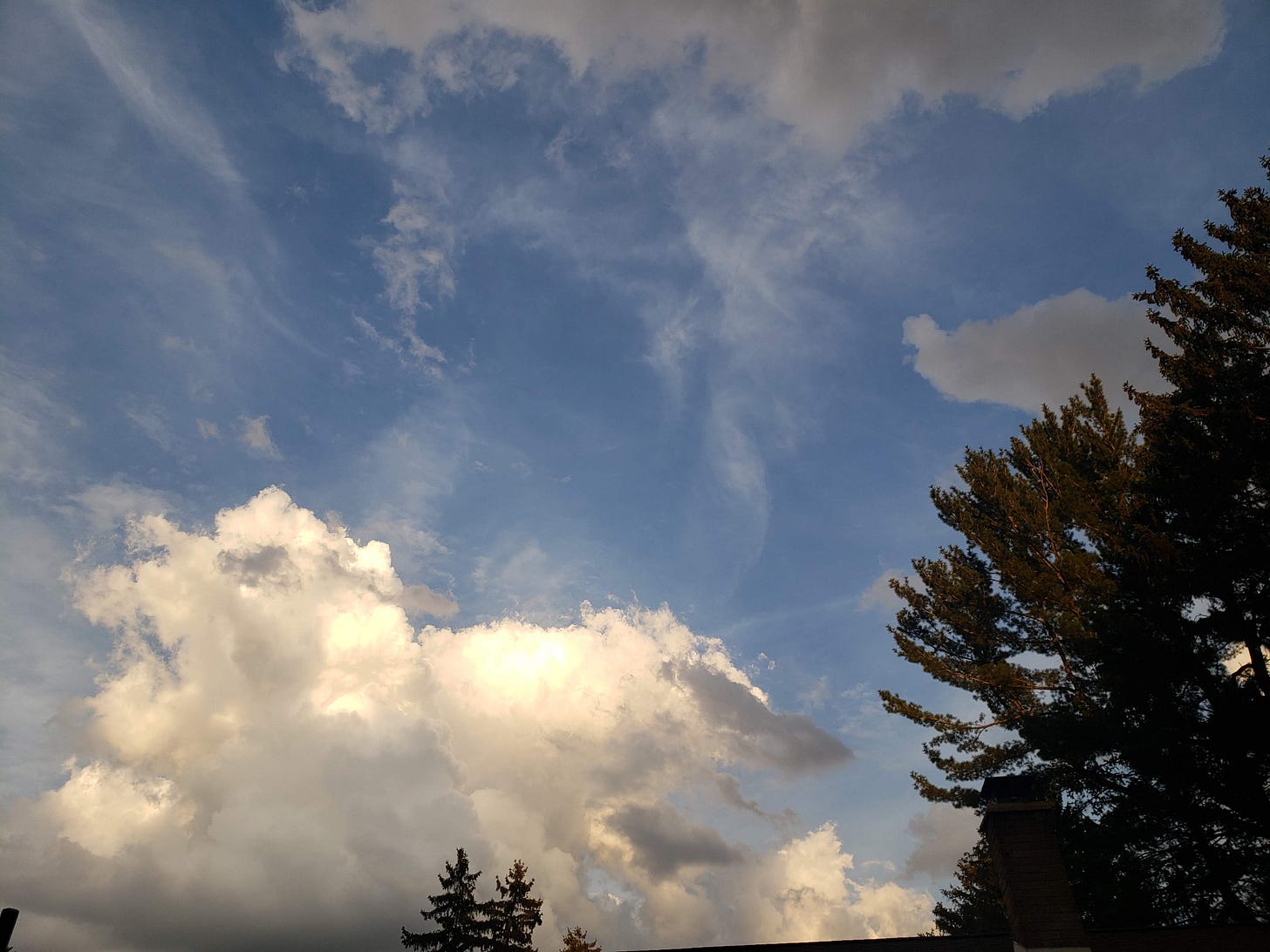
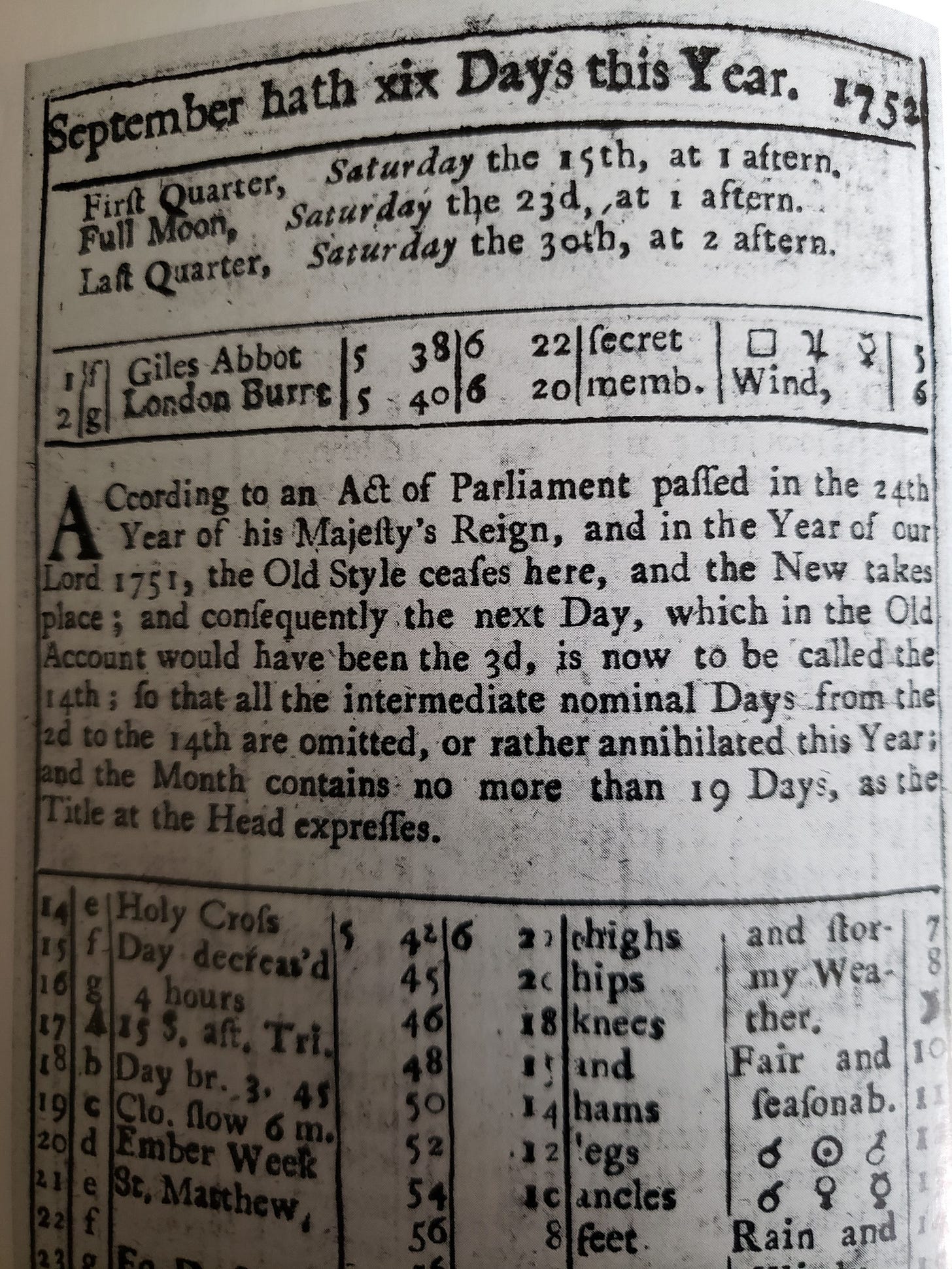
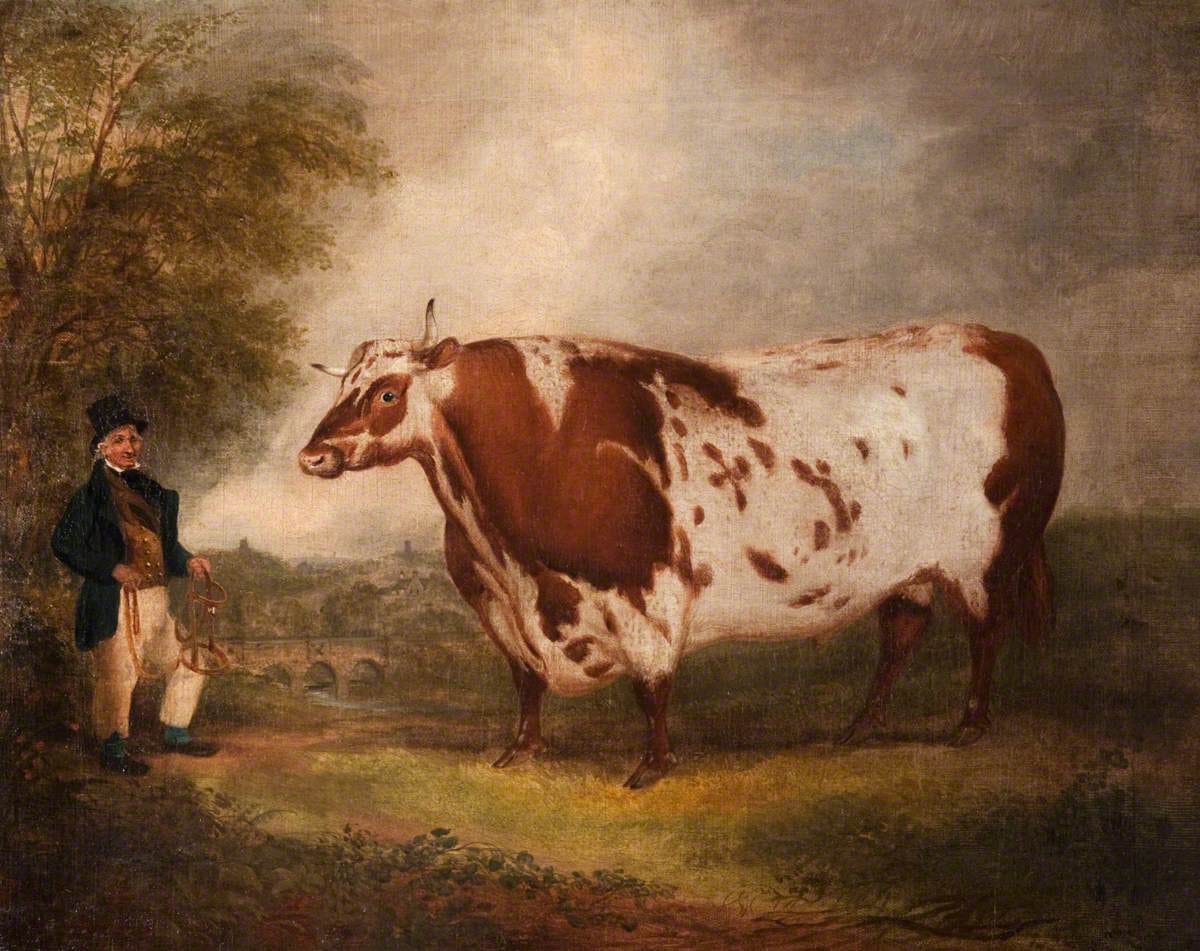
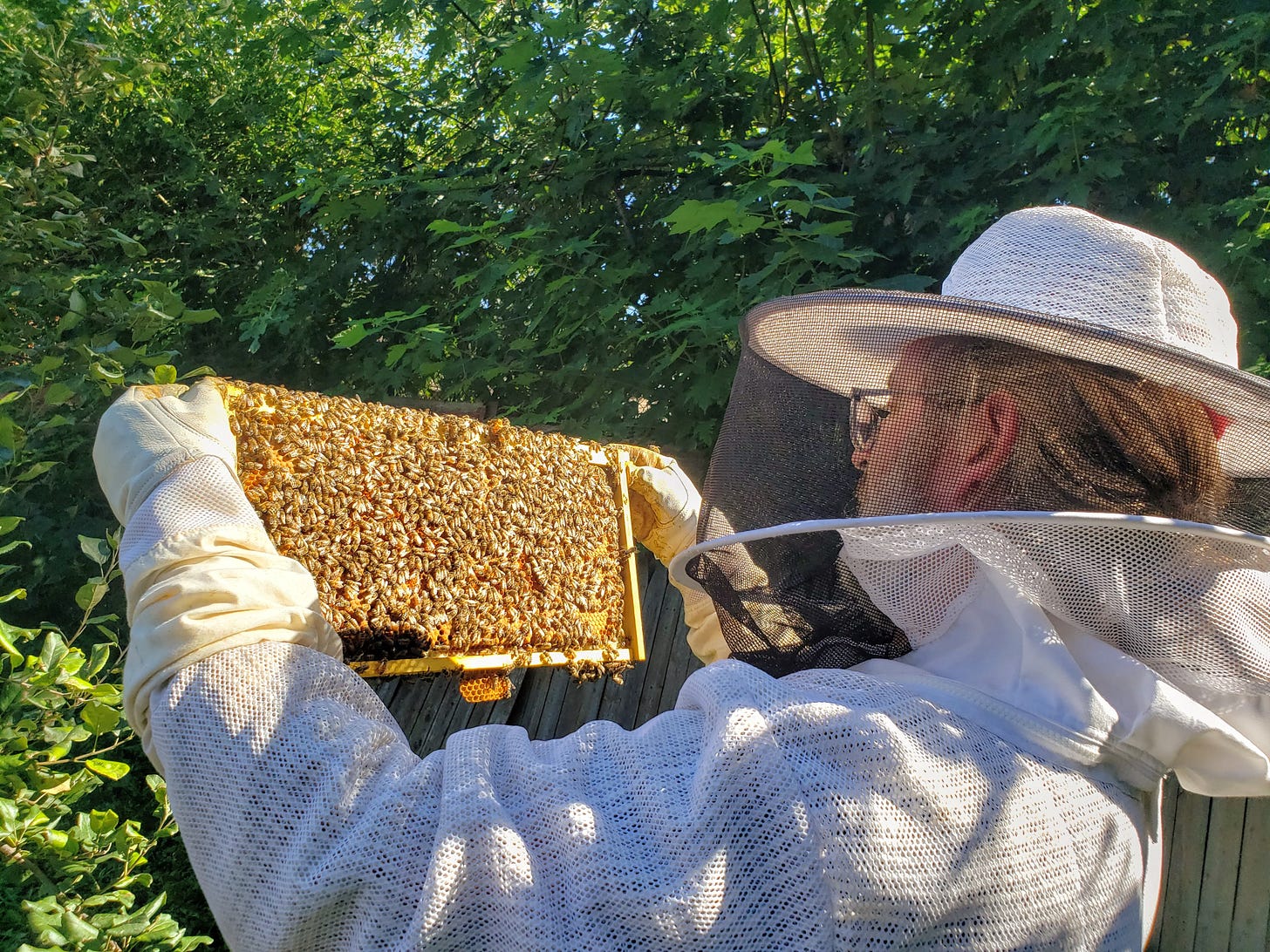
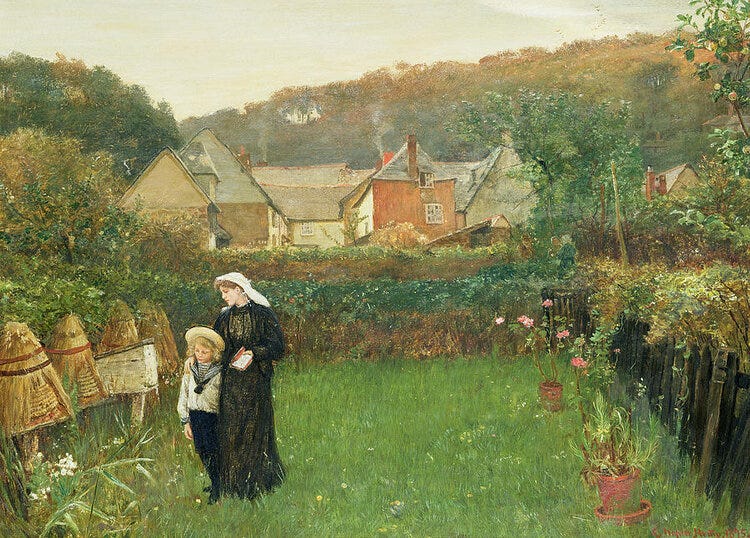

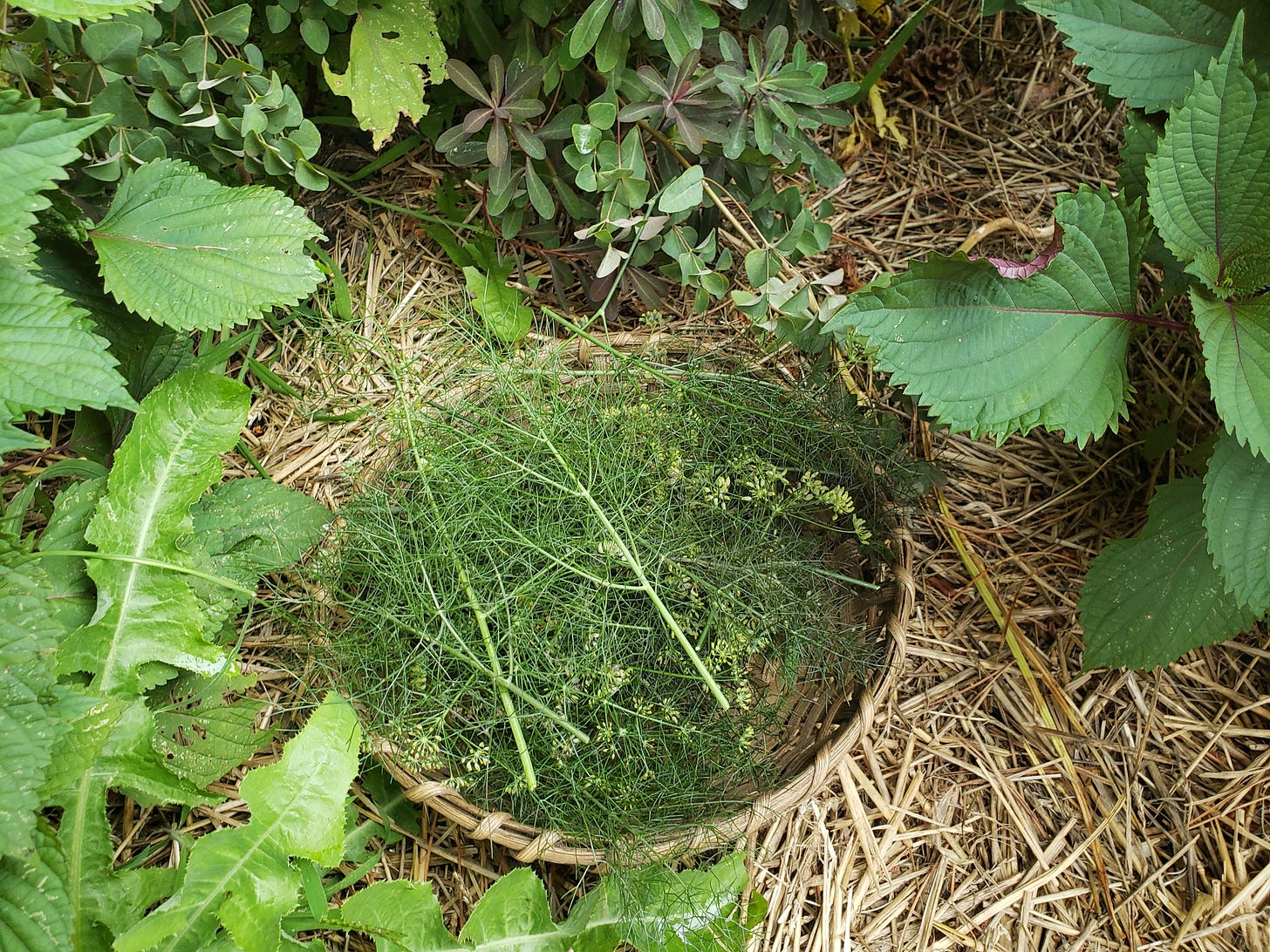
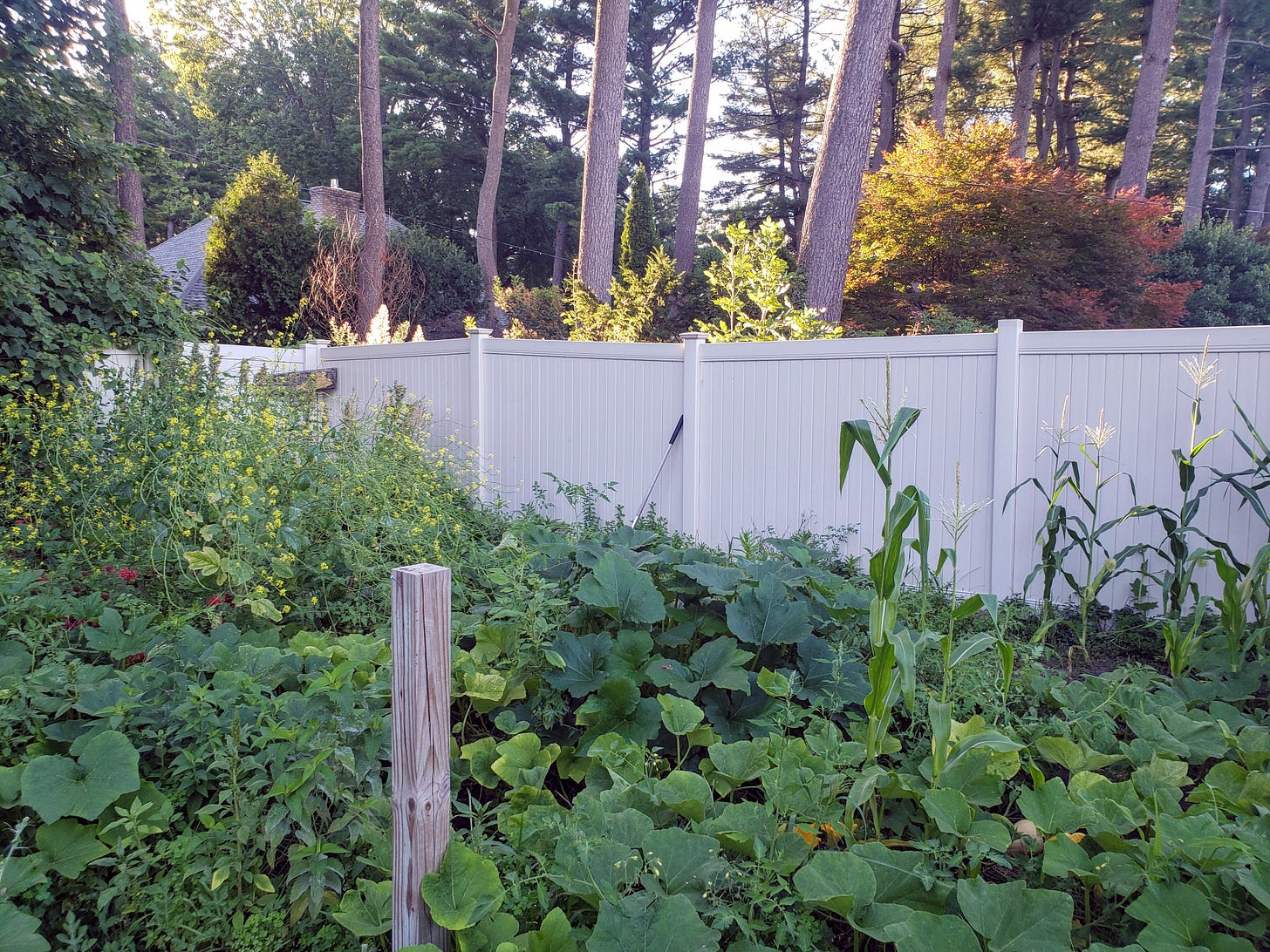
I also failed on the canning front this year. Got some jam put up, as well as a scant 12 jars of cowboy candy, which I will unfailingly consume utterly by February. Here's to more canning next season!
We have had an explosion of fruit. Earlier this season our little cherry tree went nuts. Now, all at the same time our trees that have sputtered in the past have come alive. A plum tree yielded about 50 pounds. The oven has been going around the clock making prunes. Our five-foot high peach tree fell over with the weight of 40 or so peaches. Both the red and golden apple trees are sagging with fruit and we don’t know what we will do with all the fruit. The tomatoes are getting ready and you can see the zucchini grow before your eyes!
Last winter lasted a couple weeks longer, but it was consistently cold. I think the snow cover was never compromised resulting in protection of the soil. Lots of Dairy-Doo also helped.
There is a two-block strip along Lake Superior that allows for fruit trees and we are taking full advantage of it.